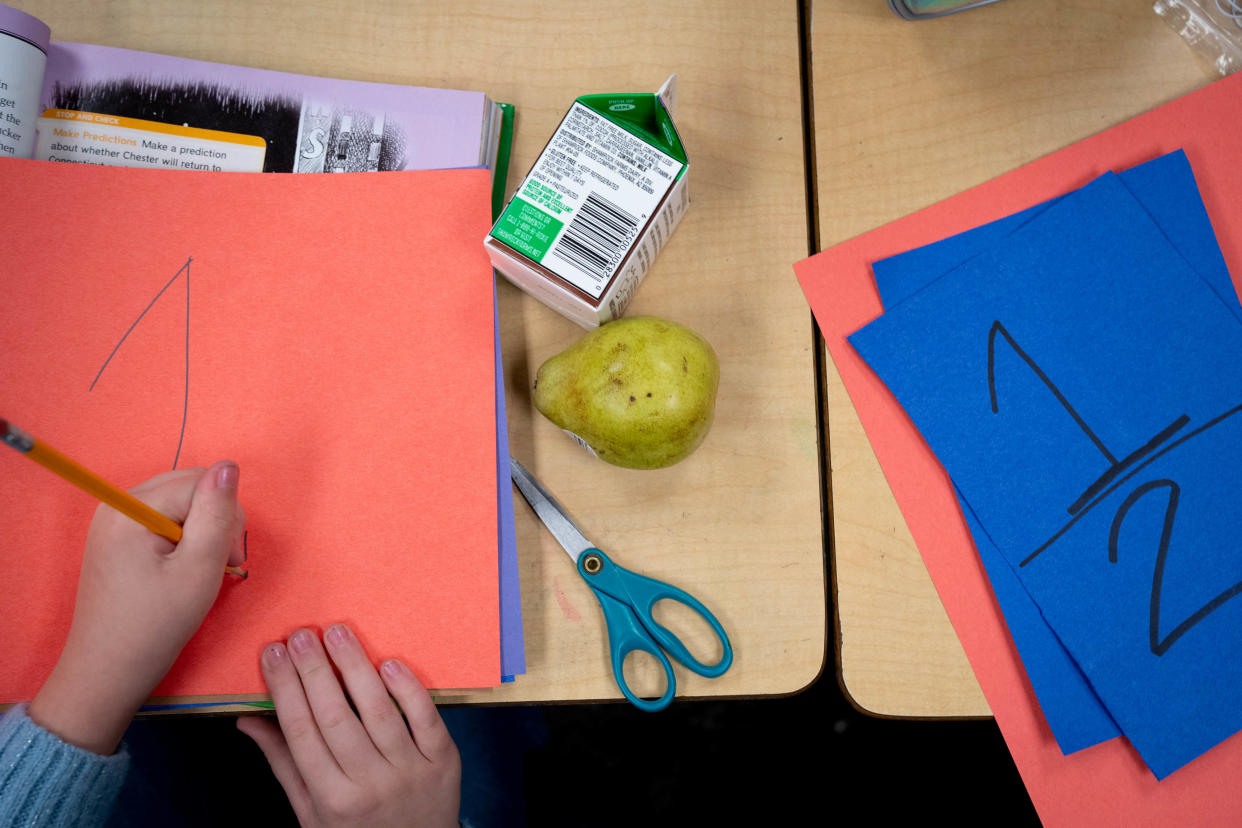How will universal vouchers impact Arizona schools? We don't know. That's the problem

Arizona is about to go full-bore on school choice, now that the Legislature has adopted a plan to offer universal vouchers.
Depending on one’s political viewpoint, it’ll either give parents unfettered freedom on where and how to educate their children, or it’ll be a death knell for traditional district schools.
In truth, it will be neither.
But questions abound.
Most immediate among them is whether opponents can gather sufficient signatures by the Sept. 23 deadline to refer the legislation for a public vote.
If they do, the voucher expansion will be on hold until the 2024 general election. Would lawmakers then repeal the legislation next year and make the referendum moot?
And would opponents challenge the expanded use of vouchers in court? In West Virginia, a judge recently struck down a voucher law for violating that state’s constitution.
Arizona's school choice system worked, imperfectly
Arizonans wouldn’t be contemplating these scenarios had legislators stood pat on vouchers, known as Empowerment Scholarship Accounts. Just four years ago, voters rejected a more limited expansion of ESAs by nearly a 2-1 margin.
Purists argue that either there should be no use of taxpayer dollars for private education or that there should be no restrictions on parents directing where their child’s share of education funding goes.
But a hybrid system in Arizona works between the two, if imperfectly.
Readers weigh in: A massive new voucher program will hurt public schools
Namely, it provides an avenue for (some) parents whose needs for their children aren’t met at a public school because of special circumstances.
In the 10 years since its inception, vouchers have been expanded for use from only schoolchildren with disabilities to also include their siblings, kids from military families and students living on Native American reservations, among others. Those categories account for 9 of 10 students using ESAs.
The limited use of ESAs – presently numbering fewer than 12,000 – makes sense.
Budget impact of ESAs is likely way off
Universal vouchers are another matter. For one, we have little idea what their impact will be.
The number of voucher participants could jump significantly when all 1.1 million students in public schools become eligible. That’s to say nothing of the estimated 50,000 students already in private schools and 35,000 being homeschooled who aren’t on ESAs but would also be eligible for the funds.
State budget analysts project vouchers to rise 5%, 10% and 20% for the first three years, on the assumption that most of the new voucher users are children starting kindergarten.
We aren’t confident in those projections, especially given the removal of a restriction that students must attend a district or charter school for 45 days before transferring and qualifying for a voucher.
Nor do we have a good sense of whether private schools have the interest or the capacity to absorb all those who are interested in enrolling. Are we just creating massive waitlists or handing out cash to those who are already enrolled in a private school?
No accountability for private schools
Then there’s the question of how to reconcile universal vouchers with the state’s School Tuition Organization, which provides tax credits for donations made to organizations that provide private school scholarships. An argument can be made that Arizona doesn’t need both, especially given that tax credits reduce the state’s revenue haul.
It’s also troubling that for all the talk of open competition, lawmakers who push for ESAs did not impose the same reporting standards on private schools receiving ESA funding as is required of district and charter schools.
For all the public dollars they stand to gain, private schools aren’t mandated to make testing, retention or graduation data publicly available, nor are they required to report the number of children on free and reduced lunch, which provide insight into relationships between poverty and learning gaps.
Some of these shortcomings may be rectified in future legislative sessions. In fact, lawmakers will need to if ESAs are to gain any semblance of public trust and acceptance.
At least offer vouchers based on financial need
But a most fundamental flaw with universal vouchers may not be correctable. And that is a principal argument supporters use – the governor did in signing the bill – to press their case: It gives parents the option to leave underperforming schools.
Arizona already permits students who are attending D- and F-rated public schools to defect to private schools and access vouchers. But the average amount of cash given to families hardly covers the cost of private school tuition.
If the governor and other conservatives truly want to target those children and parents in need, they’d make Empowerment Scholarships Account conditional upon financial need.
In fact, a few GOP lawmakers, such as Michelle Udall, now a candidate for state schools superintendent, held the line against universal vouchers in support of requiring eligibility to be based on income and testing and other disclosures by private schools Those commonsense thresholds were lost along the way this session.
Public education advocates are vehemently opposed to ESAs in principle, sometimes unnecessarily so. On their side, however, is a basic but powerful argument: Education is a public good for which all taxpayers have a responsibility.
School choice already exists. Those with resources can pay their way. Taxpayers with no children in the education system don’t get to opt out; why should those with kids – and the means – get to?
This is an opinion of The Arizona Republic’s editorial board. What do you think? Send us a letter to the editor to weigh in.
This article originally appeared on Arizona Republic: School voucher expansion law leaves too many unanswered questions

